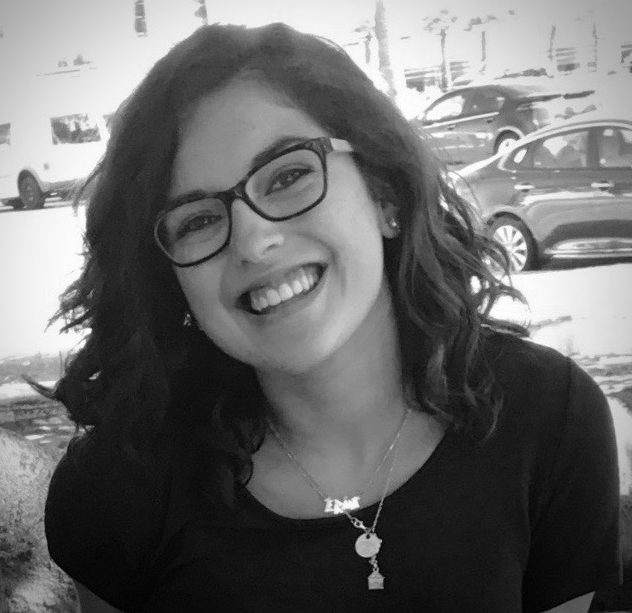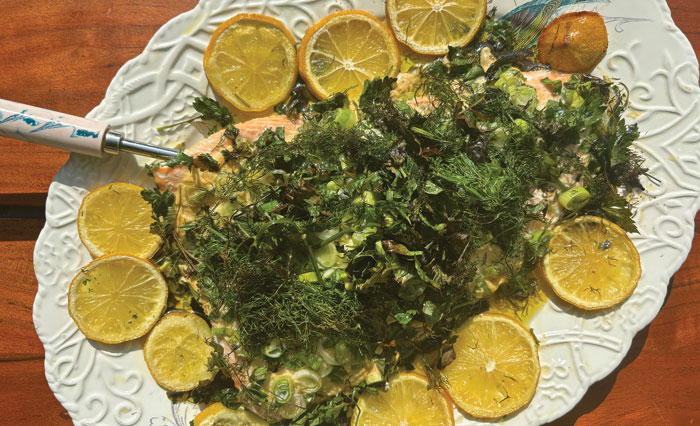 Aviv and Haim Gozali; Photo by Lucas Noonan
Aviv and Haim Gozali; Photo by Lucas Noonan When it comes to Israeli father-and-son athletes Haim and Aviv Gozali, the family that fights together stays together.
Haim, 46, and Aviv, 18, aren’t your traditional athletes. They are mixed martial arts (MMA) fighters who competed Nov. 14 in the Bellator 234 MMA Heavyweight event in Tel Aviv’s 10,000-seat Menora Mivtachim Arena.
The duo spoke with the Journal before the fight.
Haim, known as “Batman,” a welterweight fighter and former military police soldier in the Israel Defense Forces, has been fighting professionally since 1998, and lightweight fighter Aviv, also known as “The King,” currently has a 3-0 winning streak.
Haim said he was fighting professionally before the term MMA was used. Living in Israel, he started watching American fighting matches and ninja movies and wanted to take his interest to the next professional level.
“I saw the UFC (Ultimate Fighting Championship), and I said, ‘OK I want to do that.’ So I flew to New York and started training. It’s been more than 20 years now.”
In addition to his collection of medals compiled over 20 years, Haim earned a fourth-degree black belt in Brazilian jiujitsu, became head of the Renzo Gracie Israel Academy in Bat Yam, was the first Israeli MMA fighter to compete inside Madison Square Garden, and was the first Israeli to compete in an Abu Dhabi Combat Club (ADCC) event in 2007. He now serves as president of ADCC Israel.
“When I was in the army, I was 18 years old,” Haim said. “I was working in border patrol. Back then I was just learning karate, not jiu jitsu. Martial arts has been part of my life since I was 6 years old. Everything in the army was connected. The border patrol is a special unit in the army. I felt better prepared than the average soldier.”
The fighting father said MMA was his whole life and hoped it would rub off on his son. It was a rite of passage when they fought together for the first time in 2018.
“When you’re born, you want your son to do what you do,” Haim said. “I put him in a judo class when he was 3 years old but at 6 he said he didn’t like it. Then at 7 or 8 he said, ‘Look I want to compete.’ And I said ‘Great, go train.’ He did and the rest is history. You see him today and he broke the world record for fastest submission in Bellator MMA in his first professional fight.”
During that fight, Aviv defeated 28-year-old Eduard “The Hunger” Muravitskiy and made Bellator history with a highlight reel heel hook submission 11 seconds into the fight.
When Aviv decided to become an MMA fighter, Haim told him he needed to move to the U.S. so he could receive the proper training and resources. Both MMA and UFC are based on the West Coast.
“My relationship with my father when we’re not in [the] competitive mood is we’re like brothers. Not like traditional father and son.” — Aviv Gozali
Aviv said he looked up to American UFC fighter Jon Jones because “he’s the true example of a mixed martial artist to me.”
Haim and Aviv have intense workout schedules and diets. Aviv trains in Los Angeles while Haim stays in Israel. Each day includes several workouts including martial arts, boxing or jiu jitsu in the morning followed by conditioning training in the afternoon.
Since Aviv has trained in Israel and L.A., he said, “The training in L.A. is much harder. The sparring partners are more professional and everything is different.”
They also need to lose a hefty amount of weight in a short period of time. Haim said when he was two weeks away from the fight, he had 7 kilograms (more than 15 pounds) to go so it was like losing a pound a day.
“Every fight, I’m cutting like 10 kilo, which is like 20 pounds,” he said. “So I cannot eat whatever I want. If I’m eating chicken breast, it needs to be 200 grams (about 7 ounces) and rice needs to be 80 grams (about 3 ounces). No salt, no milk, no sweets.”
And although the father and son are fighters in the ring, outside of it they aren’t competitive at all.
“My relationship with my father when we’re not in [the] competitive mood is we’re like brothers,” Aviv said. “Not like traditional father and son.”
“In the beginning it was easy for me to fight him, now it’s a bit harder now that he has worked in the States,” Haim said. “When he is in Israel, he stays with me. When I visit him, we are together. We are always together. Nobody believes we are father and son. Everybody thinks we are brothers or friends.”
Although their family worries about them when they fight, Haim said the new generation of cousins is starting to train because of them. And both Haim and Aviv say MMA fighting requires a lot of work, self-care and determination. They work with trainers and a sports therapist so they can take care of themselves during each match. Haim said while others are training their bodies he is “training the brain.
“You have to have persistence,” he said. “It’s what I tell anyone about everything. If you love it and you want to do it, you need to have persistence. It’s the only way to have success. I’m 46 going on 47 and I’m still in MMA. It’s never too late to dream … no matter what age you are.”
The event will air in the U.S. via tape delay at 9 p.m. PST Nov. 15 on Paramount Network and can also be streamed on DAZN.























 More news and opinions than at a Shabbat dinner, right in your inbox.
More news and opinions than at a Shabbat dinner, right in your inbox.